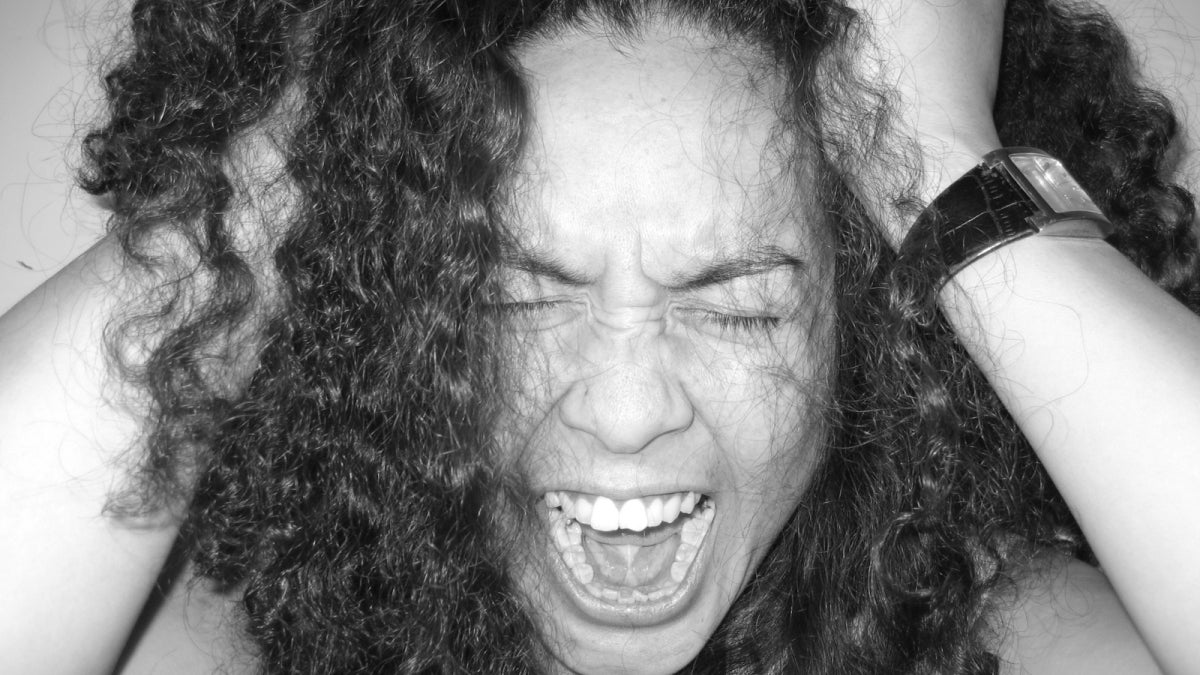Aside from warm family gatherings and coma-inducing feasts, the holidays often go hand-in-hand with something much less pleasant: stress.
It’s something that, according to Arizona State University professor Cheryl ConradCheryl Conrad is a professor in the Department of Psychology, an academic unit of the College of Liberal Arts and Sciences at Arizona State University. She also serves as associate dean for research within the college., is “critical for survival.”
Thousands of years ago, when stress reactions evolved in humans, they allowed us to adapt to changing conditions like food scarcity or the threat of predators. Today, humans’ laughably easy access to food and goods coupled with an enviable position at the top of the food chain has resulted in a paradigm shift.
“Today, we stress about things like mortgage payments or getting jobs,” said Conrad, “more what you call ‘psychological’ worries . ... We dwell on [those worries], they fester as we think about them.”
And sometimes they even negatively impact our quality of life.
ASU Now spoke with both Conrad and fellow professor of psychology Suniya Luthar to gain some insight into what causes stresses and how to cope with it. Here’s what we learned:
When it comes to stress, control and predictability are very important
During the holidays, people tend to get overwhelmed with lots of mini-deadlines — like gift shopping or sending holiday cards — in addition to their regular deadlines. That feeling of being overwhelmed can trigger a sense that one has lost control over their life.
Restoring that control, even if it’s just “perceived” control can help, says Conrad: “Have a plan and a strategy, and stick to it.”
People also tend to travel more during the holidays, something that disrupts their normal routines. For those jet-setters, Conrad suggests taking time out just for yourself to relax and unwind by doing something you always enjoy, whether it’s exercising, reading or watching TV.
“Those little decompression moments give us something to look forward to” in an otherwise disrupted routine.
Higher expectations lead to higher levels of stress
The holiday season has a tendency to increase peoples’ expectations of one another.
“Somehow there is a feeling that you will get together with friends and family, and there will be a great deal of warmth and sharing. But the higher the expectations, the more likely that you will be disappointed,” Luthar said.
Adding to that is the fact that they seem to come one on top of the other, with no letup from fall until the beginning of the New Year.
It helps to have the mindset that you don’t have to please everyone.
“Figure out what you can do realistically and comfortably,” Luthar said. “If you’ve been invited to a party and you’re exhausted, don’t go. Send your apologies. You don’t have to attend every party.”
There are many ways to cope with stress
Sometimes when you’re feeling stressed out, simply talking about it with a friend or therapist can help. If that doesn’t work, try something else: a relaxing bubble bath, a soothing massage or even cooking. There’s no one coping strategy that will work for everyone.
“People need to find their own outlets,” Conrad said.
For students dealing with the stress of finals, she suggests breaking down vague goals — such as “I need to pass my final on Wednesday” — into bite-size chunks that are more realistically achievable, like “study chapter one for an hour on Monday.”
When all else fails, see a medical professional
Luthar lists inability to sleep and lack of appetite as possible signs that you might want to consult a doctor about your stress.
Though Conrad emphasizes the fact that she is not herself a physician, she echoes Luthar’s sentiment that when stress begins to greatly interfere with one’s daily routine, seeking helpful resources is probably a good idea.
She points out that ASU Health Services available to students and staff are “phenomenal,” and encourages anyone who thinks they could benefit from them to take advantage of the resource.
More Science and technology

ASU postdoctoral researcher leads initiative to support graduate student mental health
Olivia Davis had firsthand experience with anxiety and OCD before she entered grad school. Then, during the pandemic and as a result of the growing pressures of the graduate school environment, she…

ASU graduate student researching interplay between family dynamics, ADHD
The symptoms of attention deficit hyperactivity disorder (ADHD) — which include daydreaming, making careless mistakes or taking risks, having a hard time resisting temptation, difficulty getting…

Will this antibiotic work? ASU scientists develop rapid bacterial tests
Bacteria multiply at an astonishing rate, sometimes doubling in number in under four minutes. Imagine a doctor faced with a patient showing severe signs of infection. As they sift through test…
